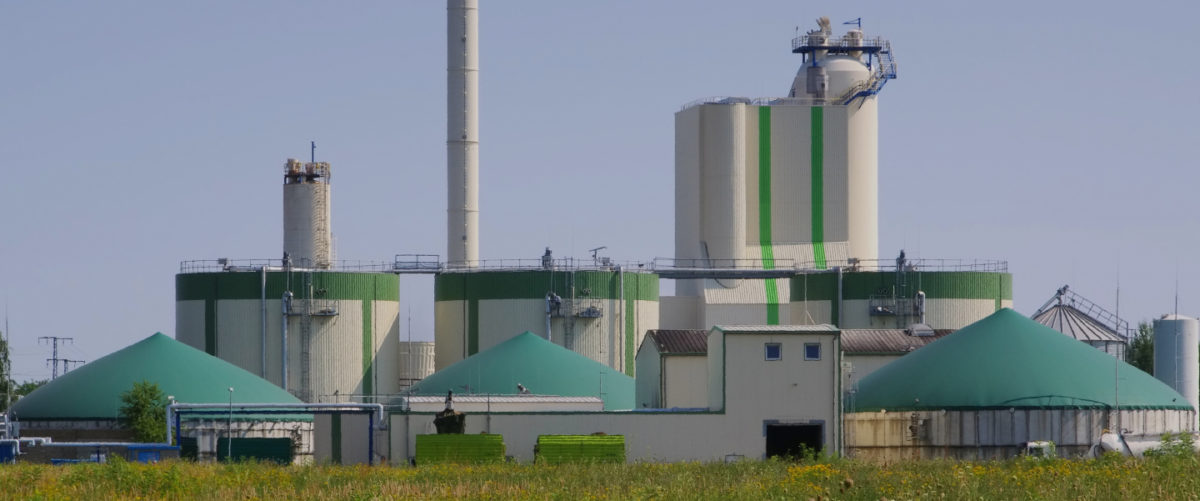Delaware Is Doubling Down On Factory Farm Biogas. It’s Not A Good Thing.
Published Mar 8, 2022

We predicted it, and it's here. Factory farm biogas and the pipelines needed to carry it are a bad deal for Delaware residents.
For more than a year, local residents and our allies have joined with Food & Water Watch in a critical mission. We’ve teamed up to fight the nation’s first poultry waste factory farm biogas facility in Delaware. Now a new front has emerged, and the community is fighting back.
Eastern Shore Natural Gas (ESNG) has proposed expanding its pipeline facility in Sussex County, right next to an elementary school. Why? To pipe in biogas from the Bioenergy DevCo facility we’ve been fighting a few miles away.
Factory Farm Biogas Is Just As Explosive As ‘Traditional Gas’
ESNG asked Sussex County Planning & Zoning Commission for a conditional use permit to expand its facility on Black Cherry Drive. Most significantly, the subsidiary of Chesapeake Utilities wants three new terminals to receive truckloads of “non-traditional” gas. We know what that means — factory farm biogas. Bioenergy DevCo has been teasing this expansion for months.
That could mean 18 truckloads of explosive gas daily to a site with almost no current traffic, a company spokesman said. The company could seek further expansion in the future, he said. All the while, local driverss and children at elementary school next door will be in harm’s way. After all, “non-traditional” biogas is just as explosive as “traditional gas.” In fact, factory farm biogas is absolutely identical to fracked gas.
This is a bad idea, and there are a lot of reasons why.

Proximity To Schools And Neighborhoods Isn’t Smart When It Comes To Biogas
The proposed pipeline expansion is adjacent to Phillis Wheatley Elementary School. The school’s playground would lie less than 1,100 feet from the gas facility. The school itself would lie just 1,300 feet away, according to the ESNG spokesman. We’re not sure where these figures come from, because at a glance Google Maps suggests they are actually much closer.
The nearest home would be just 330 feet from where the proposed facility meets the main gas line. This information is from a letter ESNG sent to the Planning & Zoning Commission. There are many additional homes in the area.
The largest pipe would carry gas under 800 pounds of pressure per square inch, the ESNG spokesman said. He also mentioned a “catastrophic failure” of the facility would have an “impact radius” of 200 feet. History suggests this figure could be misleading. In 1974, a gas pipeline facility in Bealeton, Va. exploded, burning an area as wide as 700 feet. That blast originated from a pipeline also under 800 pounds of pressure. During his commission testimony, the spokesman didn’t say how far from the facility neighbors could expect damage from potential explosions. Given that these explosions could cause widespread burning, broken windows, and serious injury, we think these details matter.
And then there are the bomb trucks. Nearly 7,000 bomb trucks annually would carry factory farm biogas from Bioenergy DevCo through the residential community into the site. This transport is not safe. The recent explosion of a fuel-laden bomb truck in New York underscores the danger posed by these vehicles. This hazard is not only at the Black Cherry Drive location, but to motorists, homes and businesses all along the haul route.
Environmental Justice Issues Raise Concern About Factory Farm Biogas
Residents within one mile of the proposed facility are significantly more likely than the average Sussex County resident to be people of color. More than a third of these residents live in low-income households. And rounding out the inequity, more than a third of them are 65 years of age or older. Placing a potentially explosive facility in a vulnerable neighborhood would worsen community members’ difficulties, while lowering their property values. In testimony before the commission, one opponent said the fact that this project was even proposed constitutes “environmental racism.” They’re right.
It’s All So Bioenergy DevCo Can Make A Buck From A False ‘Climate Solution’
The proposed pipeline facility expansion is clearly tied to the Bioenergy DevCo factory farm gas facility proposed for Seaford. It’s no big secret. Chesapeake Utilities, ESNG’s parent company, struck an agreement with Bioenergy DevCo in June 2020, and announced it widely.
The Bioenergy DevCo proposal would bring 200,000 tons of poultry slaughterhouse waste annually from three states; Delaware, Maryland, and Virginia. It would go to a digester and methane refinery near Seaford, all to sell biogas into regional pipelines. That gas would be trucked to Bridgeville to be injected into the Chesapeake Utilities pipeline. Without this pipeline facility expansion, Bioenergy DevCo has nowhere to take their bomb trucks, and nowhere to sell their gas.
This proposal would justify the pollution of factory-farmed poultry and amplify the contamination it already causes. Rather than solving the climate crisis, its damage would manifest in other toxic byproducts, some worse than the original issue.
Concerned Residents Will Speak Out Against This Dirty Biogas Scheme
Concerned Delawareans submitted nearly 30 written comments to the Sussex Planning & Zoning Commission in opposition to the ESNG pipeline proposal. Several also spoke out at the hearing. After this pressure, the Commission deferred its decision until March 10. But Food & Water Watch is prepared.
Food & Water Watch and allies will be protesting outside the Sussex Planning & Zoning Commission meeting on March 10.
Join us in protest at the Commission meeting on March 10.
Bring a sign opposing pipeline expansion, and join Food & Water Watch on March 10, 2022. We will gather outside the Sussex County Administration Building at 2 The Circle in Georgetown, DE.
Enjoyed this article?
Sign up for updates.
TO TOP


